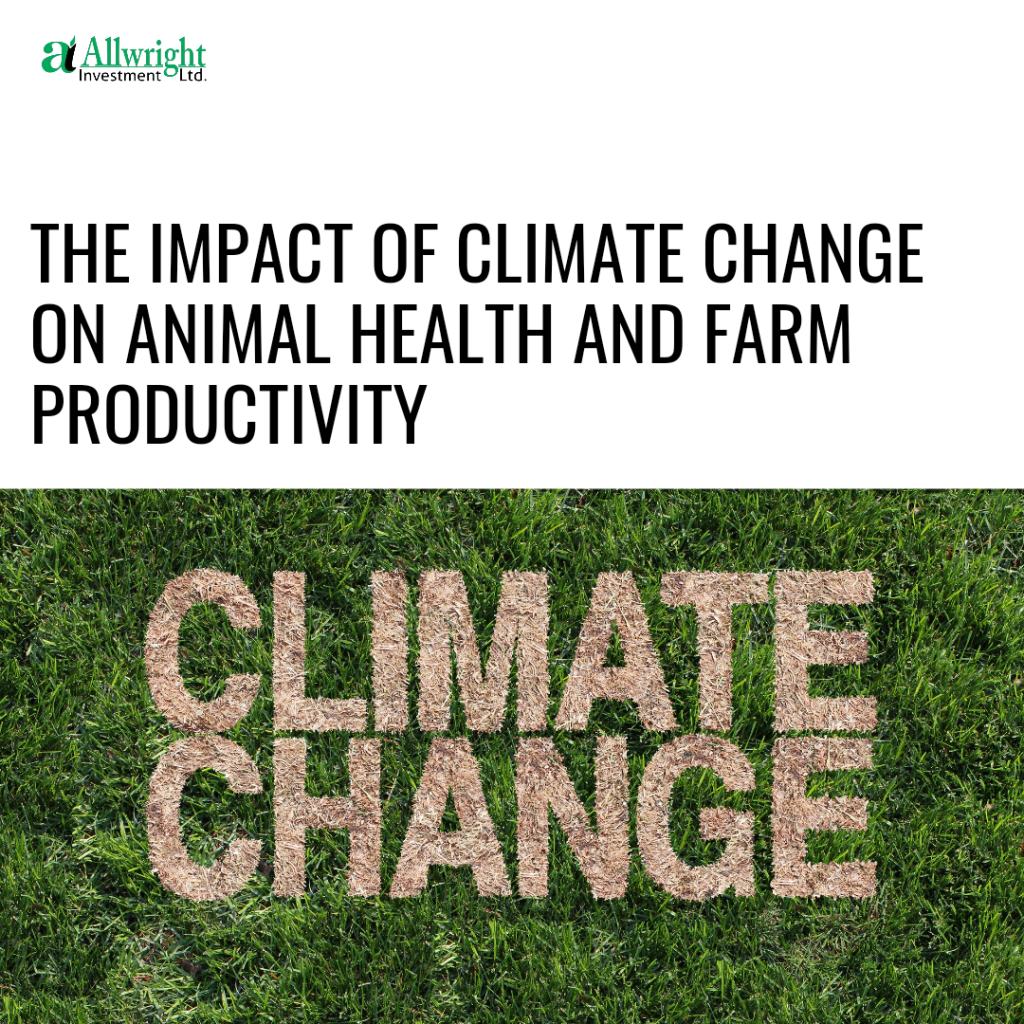
Climate change is not only altering ecosystems and human lifestyles, but it is also significantly impacting the health of animals and the productivity of farms. From increasing temperatures to unpredictable weather patterns, these shifts are presenting real challenges for livestock farmers, pet owners, and veterinary professionals.
How Climate Change Affects Animal Health
As temperatures rise, animals experience heat stress, which can lead to a range of health issues, including:
Respiratory Problems: Livestock and pets are more susceptible to respiratory illnesses due to increased dust, heat, and humidity.
Dehydration and Heat Stroke: Heatwaves cause dehydration, putting animals at risk of heat stroke and other heat-related illnesses.
Parasite Proliferation: Warmer temperatures and longer summers create favorable conditions for parasites like ticks, fleas, and worms, which can cause infections and diseases.
Decreased Farm Productivity Due to Climate Change
Farm productivity is heavily reliant on stable environmental conditions. However, climate change introduces challenges, such as:
Reduced Yield Crop: Erratic rainfall and prolonged droughts affect crop growth, impacting food supply for both animals and humans.
Lower Fertility in Livestock: Heat stress affects animal fertility, leading to reduced birth rates and slower herd growth.
Poor Quality Feed: Droughts and floods compromise the quality of forage and feed, leading to poor nutrition, which affects growth rates and milk production in livestock.
Disease Outbreaks and Changing Pathogens
Climate change has led to new diseases appearing in regions where they were previously unknown. The warmer climate enables pathogens to thrive in new environments, increasing the spread of diseases among animals.
Strain on Veterinary and Animal Care Services
Veterinary services are seeing an increase in demand as a result of these climate-induced health issues. The growing need for preventive care, medications, and regular check-ups means that owners must stay informed and prepared.
Practical Tips for Animal Owners and Farmers
- Regular health checks, hydration, and a balanced diet are essential for helping animals cope with changing temperatures and environmental stresses.
- Preventive parasite treatments can help avoid infestations that are becoming more common due to warmer climates.
- Ensure animals have clean drinking water, well-ventilated shelters, and are separated from potential sources of infection.
- Stock up on medications and supplements during seasons with increased disease risks or weather extremes.
At Allwright Investment Ltd., we understand that climate change is altering the landscape of animal health and farm productivity. By providing quality veterinary care, affordable medications, and expert farm services, we strive to help customers protect their animals and livelihoods in the face of these new challenges.
For more advice and support, reach out to us today and take proactive steps to safeguard your animals against the impacts of climate change.
Invest in Allwright Investment Limited today!

Leave a comment
You must be logged in to post a comment.